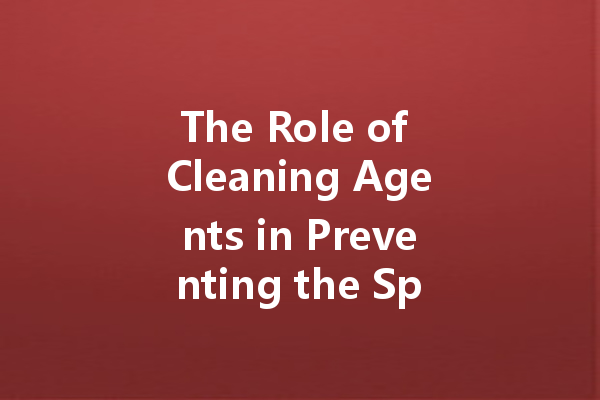Introducción
Cleaning agents play a crucial role in maintaining hygiene and preventing the spread of diseases, especially in today’s world where health awareness is paramount. With the ongoing concerns about infectious diseases, understanding the significance of cleaning agents and their proper use has never been more critical. In this article, we will explore the types of cleaning agents, their effectiveness in combating pathogens, and the best practices for their use to ensure a sanitary environment.
Comprender los productos de limpieza
¿Qué son los productos de limpieza?
Cleaning agents, also known as cleaning products, are substances used to remove dirt, stains, and impurities from surfaces. They can be either natural or synthetic, ranging from simple soap and vinegar to complex chemical formulations. Each type of cleaning agent serves specific purposes based on its ingredients and pH levels.
Tipos de productos de limpieza
Existen varios tipos de productos de limpieza, entre ellos:
The Importance of Cleaning Agents in Disease Prevention
Breaking the Chain of Infection
Infections spread through several routes, including direct contact with contaminated surfaces. When cleaning agents are used effectively, they break the chain of infection by removing and killing pathogens before they can infect individuals. Regular cleaning, especially in high-touch areas like doorknobs, countertops, and bathroom surfaces, is essential for maintaining a healthy environment.

Efficacy Against Pathogens
Different cleaning agents are effective against various pathogens. Disinfectants, for instance, are highly effective at killing bacteria and viruses. Some agents have been tested and proven to eliminate over 99% of germs, including those responsible for colds, flu, and more severe diseases like COVID-
Buenas prácticas en el uso de productos de limpieza
Selecting the Right Products
Choosing the right cleaning agent is critical for effective cleaning. Look for products that are EPA-registered disinfectants, as these have been tested for effectiveness against specific pathogens. Additionally, consider eco-friendly options that are safe for both health and the environment while still being effective against germs.
Proper Use and Application
Conclusión
Cleaning agents serve as a frontline defense against the spread of diseases, especially in settings where hygiene is of utmost importance. By understanding the various types of cleaning agents and their proper application, we can effectively minimize the risk of infections and create healthier environments for ourselves and those around us. Regular cleaning, combined with awareness of best practices, empowers everyone to play an active role in disease prevention.
